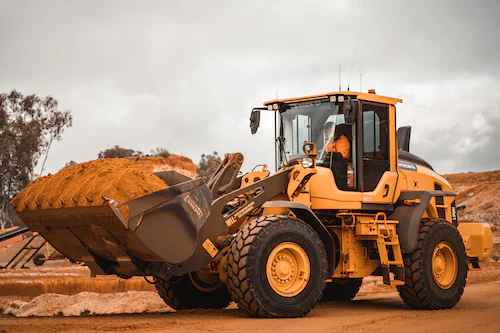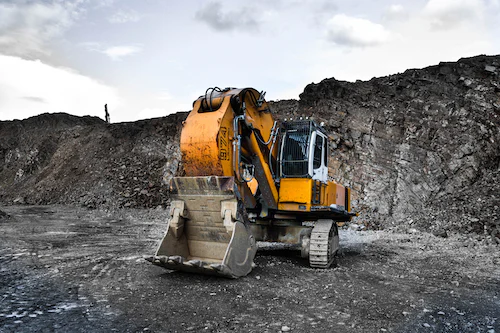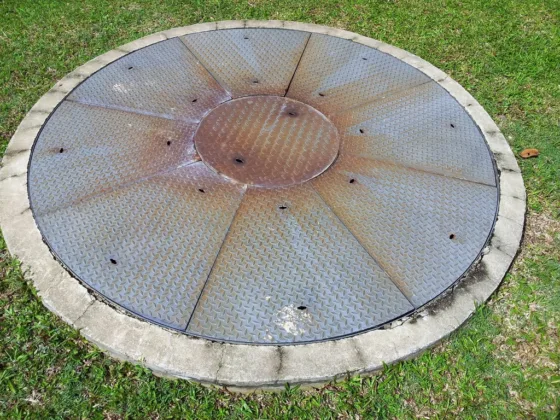Embarking on a construction project is an ambitious endeavor that demands careful planning and well-managed execution. No matter what kind of construction project you’re undertaking, success hinges on a well-structured approach.

So, here are some of the most critical aspects that can make or break your construction project. From the initial phases of project planning and compliance with legal regulations to the practical considerations of renting equipment and sourcing materials, we’ll guide you through these crucial factors. What’s more, we’ll emphasize the importance of safety and risk management throughout the construction process.
Read on to get inspired and start planning for your construction project. By following this guide, you can manage a budget-friendly, compliant, and practical construction project that prioritizes health and safety at every step.
Construction and Financial Planning
Step one of any successful construction project is to plan meticulously. This is the best way to ensure that everything goes smoothly and stays within budget. Detailed planning sets the direction for the entire project. It involves defining the construction project’s goals and establishing a clear schedule for execution.
There are important architectural and engineering considerations to take into account to ensure that the project maintains structural integrity and safety standards, and boasts a functional design. You’ll need to choose the right materials, contractors, and methods to bring your vision to life.
Budgeting and financing are equally important, as they determine the construction project’s feasibility, and how far you can go. Create a realistic budget, obtain the necessary funding, and monitor expenses throughout the project to avoid overspending and financial strain. Manage the construction project to make sure everyone sticks to the timeline and materials budget at every step.
Legal Permissions and Licenses
While you are in the planning phase, you will also have to ensure that your construction project complies with local laws and permit requirements. Securing the necessary permits and licenses is often the first hurdle and not always straightforward. However, they are necessary to obtain. These legal documents grant you permission to begin construction activities. Failing to obtain them can result in costly delays and legal complications.
You’ll also need to ensure that your project is adhering to building codes and zoning laws. This is essential to guarantee the safety and structural integrity of your construction project. Compliance with building codes and zoning laws ensures that your project doesn’t violate land-use regulations.
Read Also :
Moreover, construction impacts the environment, so understanding and complying with environmental regulations is vital. This involves waste management, being careful about erosion, and protecting natural resources. Violating these rules can lead to fines and damage to the environment.
Renting Construction Equipment
One way to stay on budget and ensure the construction project goes smoothly is to rent construction equipment from a reliable source. This is a practical and cost-effective solution, providing access to specialized machinery without the strain of actually buying expensive equipment such as mini, midi, and wheeled diggers. Realistically, you won’t need permanent ownership of these machines, so renting makes more sense. Renting equipment also eliminates the need for long-term maintenance and storage, making it a hassle-free option.
With rental services offering a wide range of equipment options, from excavators to mini diggers and cranes, renting is a convenient choice for construction project runners who need temporary access to the right tools for the job. Just make sure to source your machinery and equipment from reputable and reliable sources. This brings us to our next point, the careful sourcing of your contractors and materials.
Sourcing Your Contractors and Materials
In terms of choosing your contractors and sourcing your materials, you will have to do your research and ensure that the professionals you are getting on board are able to work to your timeline and standards.
When choosing contractors for your project, consider factors like their experience, qualifications, track record, and references. It can help to use recommendations from friends or family. A trustworthy contractor will be skilled and reliable and able to execute your project efficiently and within budget. Make sure to talk in detail with your contractor before agreeing to hire them, as you will need to ensure you’re on the same page.
As for sourcing construction materials, locating reputable suppliers is vital. You should also establish quality control measures and then work closely with your suppliers to monitor material quality throughout the construction project. This will minimize the risk of defects or delays in material delivery.
Risk Management and Safety During Construction
Safety and risk management considerations are also crucial at every stage of your construction project. Prioritizing construction site safety is a must for all project managers. This involves implementing safety protocols, providing protective gear, and conducting safety training to prevent accidents and injuries. This can protect your crew from harm and protect you from liability suits.
Make sure you have purchased adequate insurance coverage to protect you against unforeseen incidents, such as property damage or worker injuries. These incidents can be very costly, and insurance mitigates the financial risks, as well as ensuring that the project can continue even when setbacks occur.
Make sure that you are identifying potential risks early in the project, as this allows for the development of effective mitigation strategies. You should be analyzing hazards throughout the process, creating contingency plans, and making informed decisions to minimize project disruptions. Risks to the project include injuries, financial setbacks, and issues with equipment and material delivery that can alter the timeline.
In the world of construction, knowledge, and preparation are your main allies. The foundation for a successful project lies in detailed planning, adherence to legal requirements, smart equipment choices, and the selection of trusted contractors and suppliers. Moreover, a constant focus on safety and risk management ensures the well-being of all involved and the project’s ultimate success. By following these guidelines and maintaining a steadfast commitment to quality and safety, you can navigate the intricacies of construction with confidence. Armed with this valuable information, you’re better equipped to embark on your construction project, turning your vision into a reality while minimizing setbacks and maximizing success.










